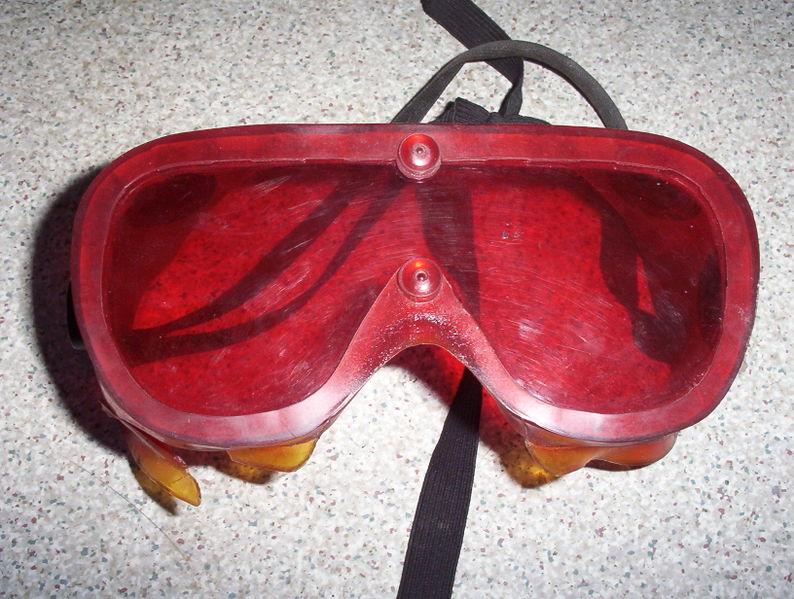by
You’re naturally confident.
Right?
As an athlete, you have to be. When you’re sitting down at halftime, warming up in the bullpen, or on the blocks, you can’t afford to ask yourself: what if I’m doing this wrong? You just go.
Here’s the problem: that same kind of thinking that works great when you’re competing – no doubting yourself, no matter what – can kill you in recruiting.
You’ve got to admit to yourself when you make a mistake. Here are six of the most common ones.:

1. You get recruiting advice from people you know
Friends and family are great. None of us – especially those of us who eat, sleep and breathe sports 24/7 – could do what we do without them. Why are they great? Partly because they’re nice to us.
And that’s exactly why they should not be giving you recruiting advice.
People who are close to us, especially parents and even sometimes our coaches, can look at us with “love goggles” on – see the pair on the left? They are rose-colored. “You’re fantastic! You’re Division I material! The coaches will come running!” Truth is, probably 90% of athletes hear this from their friends and family, but only 2% of high school athletes go on to college. See the problem?
When it comes to recruiting, you need somebody who’s going to give you the honest truth. If you happen to know a college coach (who’s not in your family), maybe ask them. If not, talk to an NCAA-certified recruiting expert. Feel-good talk about where you can go won’t get you ahead – real talk will.
2. You don’t have a highlight video
This is pretty basic. Athletes get recruited because coaches want them. Coaches want those athletes because they think they will make the team better. Coaches find out that you can make a team better by seeing your highlight video. If they don’t know what you can do, how can they know they want you on their team?
To be fair – runners and swimmers, this is a little less important for you, because your times are so important. But not much – you’ll still need skills tapes, and meet footage won’t hurt. Think of it this way: you’re not the fastest runner in the country, which means there’s someone else with the same times as you. If a coach is looking at both of you, do you think they’ll pick the one with a video (whose form the coach can see), or the one without it?
3. You make athletics an excuse for bad grades
Think you can skate by with weak grades because you’re an athlete?
Everybody knows (or knew) one star athlete in their high school that thought so. Any parents reading, take a second and ask yourself: where’s that athlete now, who didn’t care about grades?
Did they go to college? Are they successful now? Do you even know where they are?
Even if you want to go pro – you have to have the grades, get into a good college and get exposure. If you were the next LeBron James, you’d know already.
4. You don’t have any letters
If you aren’t getting some kind of letters and you are in high school, this is not a good sign. Athletes who are in demand get letters from coaches, period. Maybe you need to step up your game. Maybe the coaches don’t know about you. But if there aren’t letters, there isn’t interest.
5. You only have letters
At the same time, letters don’t mean much without the follow-up, the coach communications, and the attention. NCSA’s founder, Chris Krause, had a boatload of letters as a high school student, but he almost missed being recruited altogether because he didn’t follow up. Letters are a step in the process, and they’re only as good as the coach communications, visits, and ultimately, the offer that you get out of them.
6. You think everything is going well
That last point – that letters are only as good as the offer that they get you – is true about everything in recruiting. It doesn’t matter if you’re All-State, getting letters from the top colleges in the country, taking visits, or appearing on SportsCenter and the cover of Sports Illustrated. Recruiting is over and done once you sign on the dotted line at your dream school. Until that point, everything is just an opportunity. And after you sign that letter – well, that’s when it really gets hard.
Avoid these mistakes and get elite recruiting advice from an NCAA-certified recruiting expert – click here or call 866-495-7727 to join the network.

No comments:
Post a Comment
Thank you for your comment. Please share our post with your friends.